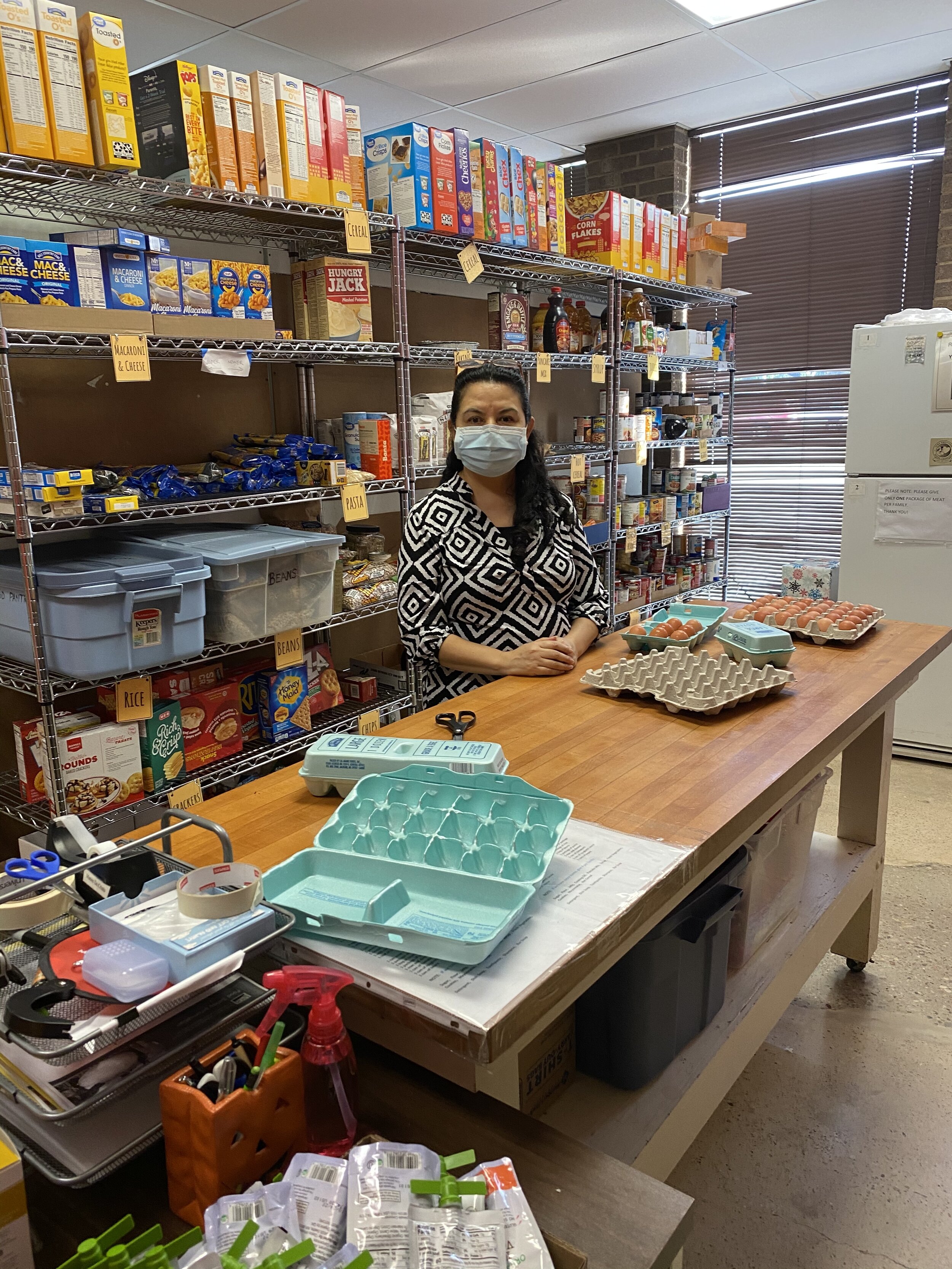By Rev. Claire Berry, Associate Pastor of WHPC
In Luke’s gospel, Jesus has a conversation with a scribe—a legal expert—about the two most important commandments in God’s law. These are, of course, to love God with all we’ve got, and to love our neighbors as we love ourselves (Luke 10:27). But the scribe seeks greater clarity, asking Jesus, “Who is my neighbor?” We may find ourselves wondering the same thing. Who is it that God calls us to love?
The story that Jesus tells in response is one of his most famous: the parable of the “good Samaritan.” In this parable, robbers attack and rob a traveler on the road to Jerusalem, leaving him in a ditch to die. Passersby ignore the injured man, even crossing the road to avoid him. Finally, a Samaritan—an outsider—comes by. He treats and bandages the traveler’s wounds and takes him to an inn to recover, all expenses paid. This man, Jesus teaches, acted as a neighbor.
I’ve always found it puzzling that Jesus doesn’t really answer the scribe’s question. The scribe wanted to know who his neighbor was—to know whom he was called to love. In response, Jesus gave a lesson about how to be a neighbor. I’ve been thinking about what this might mean, and I’m increasingly convinced that the original question—who is my neighbor—has no answer because it knows no bounds. God places no limit on who we should love. We are called to love everyone, with all the mercy we can muster.
---
Manos de Cristo, one of WHPC’s oldest community partners, is all about mercy and love. Their organization lends a helping hand to our neighbors in central Austin, providing basic needs like food and clothing to low-income individuals and families, as well as affordable dental care and free educational opportunities. WHPC contributes financial support in support of Manos, as well as groceries for their Food Pantry.
Manos de Cristo’s food pantry, stocked and ready to serve.
The coronavirus pandemic has directly affected Manos de Cristo’s work. Their Food Pantry is currently serving over 1,200 people a month with a week’s supply of food. For perspective, this is four times as many clients as they usually see. By June of this year, Manos had already served as many individuals and families through the Food Pantry as they did all year in 2019. At this point, they attribute this uptick to widespread job loss in the service industry due to COVID-19.
Groceries purchased by WHPC and other churches, as well as 900 to 1,000 pounds of food each week from the Central Texas Food Bank, have helped Manos de Cristo rise to the challenge. WHPC’s grocery purchases are a significant piece of the puzzle. Our congregation contributes items that Central Texas Food Bank does not provide, but which individuals and families need—things like cereal, shampoo, detergent, and flour. In addition, HEB cards given by church members help families purchase protein to balance their diet.
These numbers and facts alone are highly motivating. It’s so important that WHPC plays its part to relieve hunger in our city.
Today, however, I invite you to consider the stories behind the statistics—stories of food pantry clients, which Diane Riehs, Manos de Cristo’s Director of Development, recently shared with the WHPC Mission Committee and me.
---
Monica is a 57-year-old, single woman. She sold catalog products door to door. She was forced to quit her job because of the close interaction with her clients. She visits the food pantry every 15 days.
Philip is homeless and comes to the food pantry occasionally for food, a new shirt, pants, and a clean mask. He has expressed his gratitude for the help.
Margie came to the food pantry last month, requesting only canned food because she lost her job and was living in her truck. This week, she came with a friend because she had to sell her truck and can only visit our Food Pantry when she can find transportation.
Edgar is 34 years old with a 7-year-old son, Nate. Edgar worked construction before he injured his back. He has not been able to collect unemployment and does not have money to buy food. Nate misses going to the store to pick out his favorite cereal. When we asked about his favorite cereal, he was happy to tell us. We filled his cereal order to accompany the other groceries. Nate was delighted.
Sophia and Maria are a mother and daughter who live together with 11 family members. They come to Manos for groceries. Several of the young men in their family continue to work during the pandemic when they can find day labor jobs.
Dora likes to visit the Food Pantry because her paycheck does not go very far. Last month, she spent $200 on a new hot water heater and did not have enough money to buy food as a result.
Virginia lost her job because of the pandemic. She had never been to a food pantry in her life. She expressed her dislike and embarrassment for having to visit Manos now—but she came because she needed food.
---
These are our neighbors. They come from all walks of life. Each one has agency, dignity, and worth. Each one has reached out for help amidst this crisis. But we reach out to them not because of who they are, where they are in life, or any other qualification. In partnership with Manos, we reach out because God’s mercy knows no bounds. Even the line between “we” and “they,” “us” and “them”—it’s easily blurred. We are all each other’s neighbors. We are one community, united by God’s love.
I encourage you to learn more about Manos de Cristo and to keep supporting however you can.
A current shopping list can always be found at www.whpc.org/mission.





